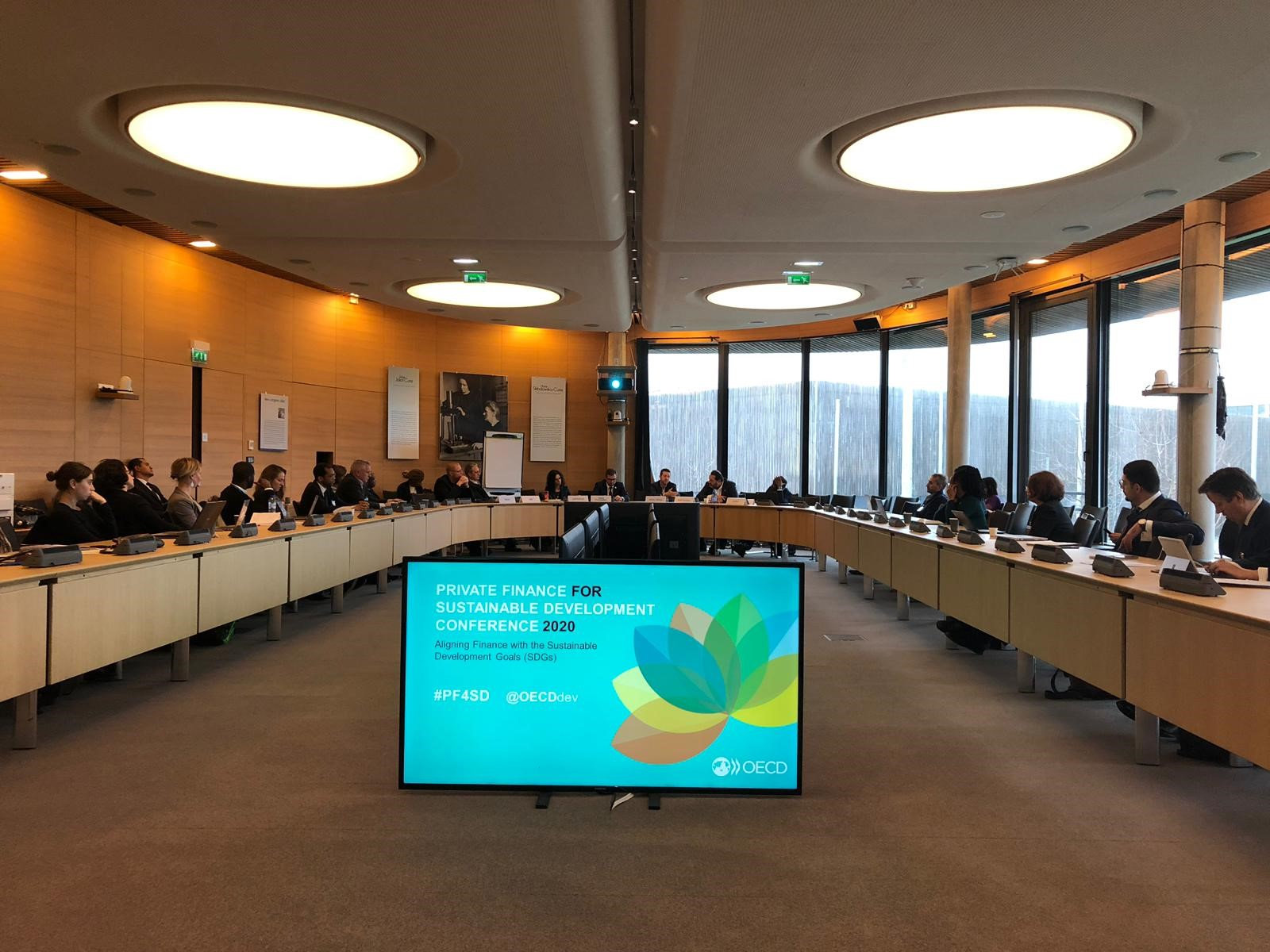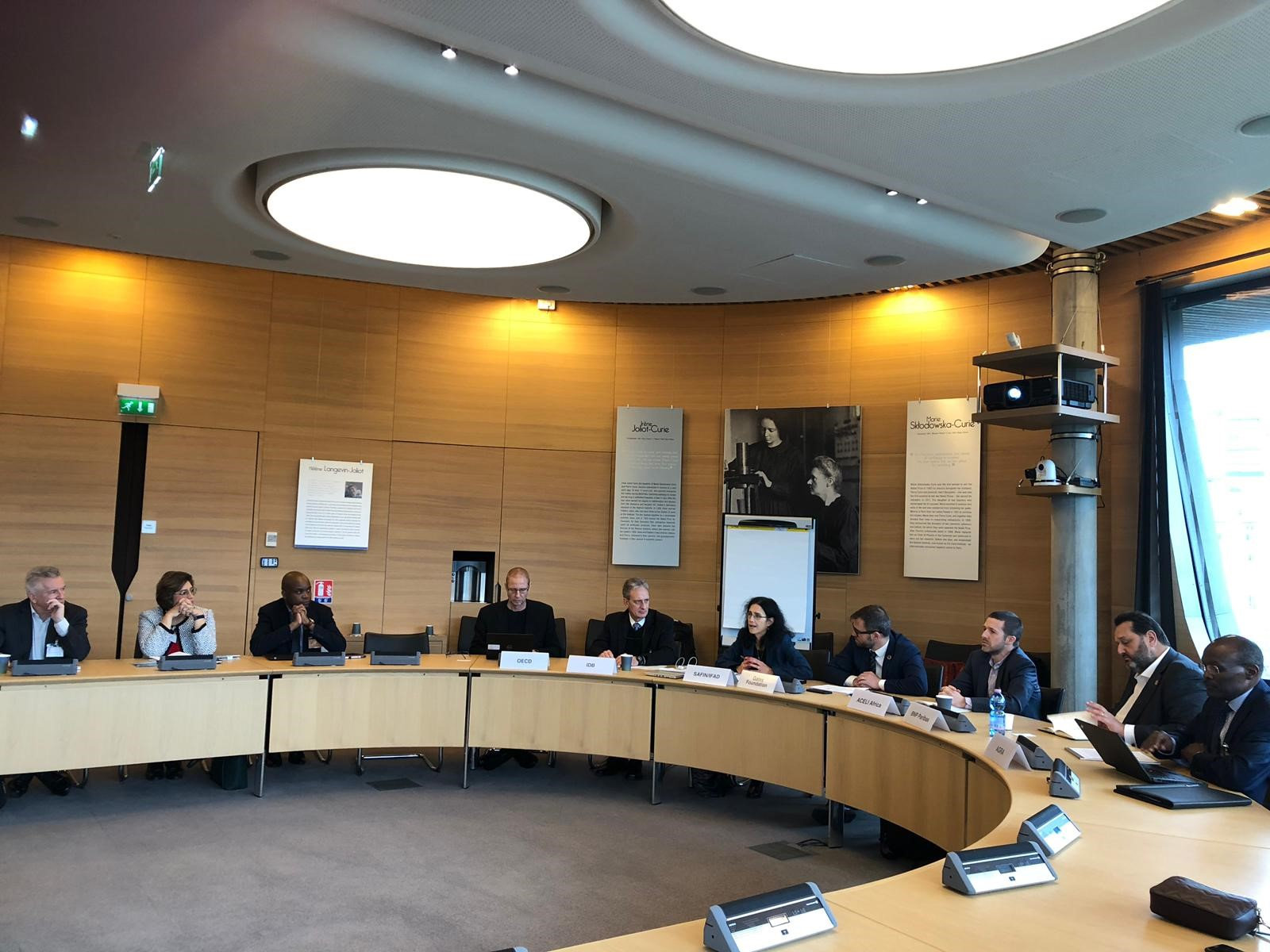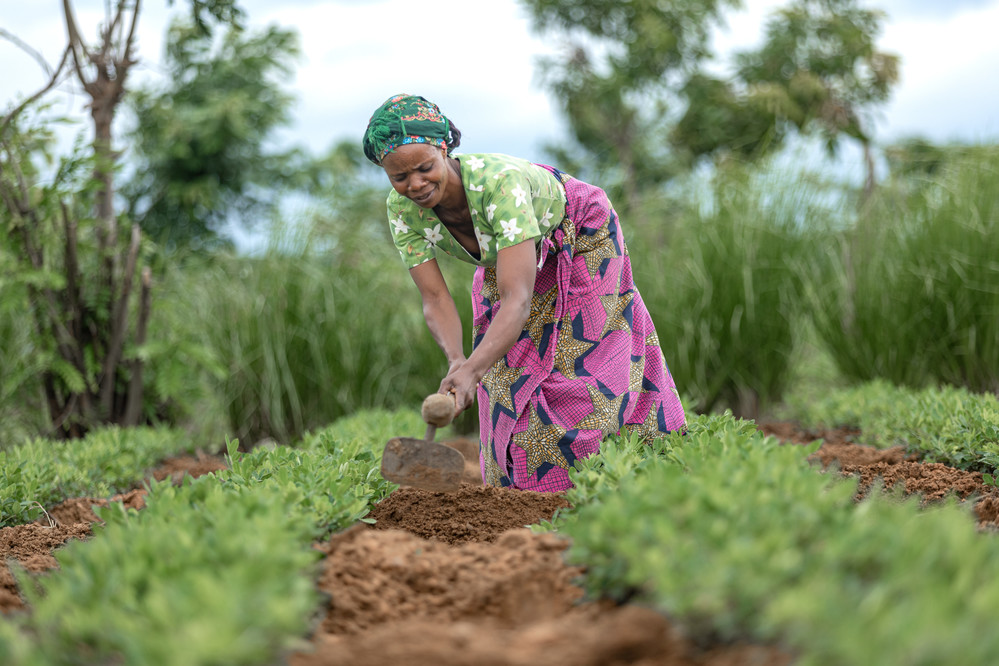The Private Finance for Sustainable Development (PF4SD) week is held at the Organisation for Economic Cooperation and Development (OECD) in Paris every January to gather policy makers, investors and leading experts in finance and development to discuss how private capital can be mobilized towards the Sustainable Development Goals. This year, the forum took place on 28-30 January with over 600 attendees, gathered under the theme of “Aligning Finance with the SDGs”.
Throughout three days of panels and working sessions, including a full day high level Conference (held on 29 January), participants presented evidence of growing interest and commitment to SDG alignment not only among traditional “impact investors” but increasingly also among more mainstream parts of the industry. Calls were repeatedly heard to accelerate the pace of the response to this growing commitment through enabling policies, policy coherence, shared standards and metrics, and incentives. As in earlier editions of the forum, the need for faster progress to build reliable and comprehensive data systems to inform such metrics and incentives was emphasized, with some speakers particularly stressing challenges and opportunities for the agri-food sector.

SAFIN-OECD session on disruptive use of blended finance in the agri-SME space
Over the past two years, the conference has been an important space for SAFIN to bring closer attention to the challenges and potential solutions to mobilizing finance towards agri-SMEs. This January, the SAFIN Senior Coordinator was invited to speak about green finance and alignment of private investment in the agri-food sector, in a panel convened by the Japan Ministry of Foreign Affairs on 28 January. In addition, SAFIN and the OECD Financing for Development team co-hosted a session on the role of blended finance in fostering inclusive agri-food and agri-finance markets, building on the findings of the joint deep dive on blended finance and agriculture as well as on a report recently commissioned by the Bill and Melinda Gates Foundation and the UK Department for International Development (DFID). The session aimed to consider whether and how blended solutions can not only address risks that hinder the flow of private finance towards specific investments, but also address some of the market gaps or failures that so often underlie such risks.
Rodrigo Salvado, Deputy Director of Development Policy and Finance at the Bill and Melinda Gates Foundation, opened the session with a keynote presentation of the report Bending the Arc: How The Full Spectrum of Capital Can Enable Inclusive Growth in Agriculture, prepared by FSG. Building on a detailed analysis of five African case studies of company-specific or sector-wide blended investments, Salvado argued that concessional finance can be used alongside semi-commercial and commercial capital to foster inclusive markets in the sector. However, there is need for greater market impact intentionality, and for more targeted use of different types of capital to act upon specific levers of inclusion and/or growth. For concessional finance providers like the Foundation itself, the report underlines the importance of flexibility, long-term engagement, and a non-linear understanding of how different types of capital may be needed repeatedly or in combination all along the development pathways of both individual companies and (sub)sectors.
The panel that followed this introduction discussed different ways of using blending for disruptive market impact, complementing the enterprise and sector finance focus of the keynote. Dieter Wittkowski of IDB Innovation Lab illustrated the experience of the Bank in catalysing the development of a new value chain for macauba in Brazil, through an innovative blended structure. Ezra Anyango of AGRA discussed the powerful effects of simultaneously strengthening value chain functioning and designing and de-risking financial products that target the needs of farmers and other actors at specific points in the value chain. Brian Milder presented the innovative approach of Aceli Africa to addressing both risks and incentives confronting financial institutions serving agri-SMEs in East Africa, based on rigorous data systems and analytics. Finally, Pierre Rousseau of BNP spoke to the challenge of forming impactful coalitions around transformative projects in the sector, which can then be the focus of innovative blended finance solutions, and he underlined the importance of having small farmers at the centre of such coalitions.

Speakers at the SAFIN-OECD session on Disruptive use of blended finance in the agri-SME space
In conclusion, Bettina Prato, Chair of the session, noted a shared sense of possibility and need to expand the intentionality of blended finance in the agri-food sector to have market-wide impact, including fostering growth and making growth more inclusive and sustainable. She further noted the possibility of deploying different types of blended instruments with different entry points – from the value chain to the financial sector – to this effect, as illustrated in the FSG report and by the panellists. Finally, she underlined the need for investment strategies for the sector that can inform this intentionality, and mentioned in this regard the effort of the SAFIN network to bring the agricultural and finance communities together around “investment prospectuses” for specific value chains. These and other findings from the session will inform the agenda and partnerships of the network for the coming year.
Read the summary report

